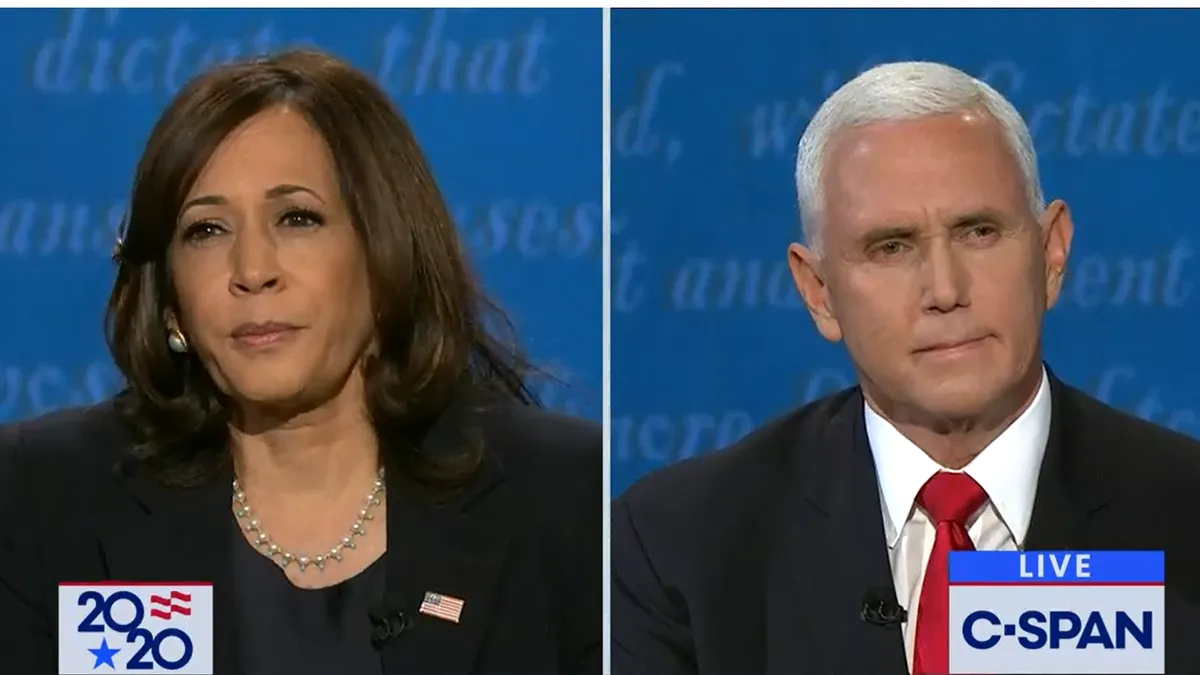Jobs numbers were featured prominently in Wednesday’s vice presidential debate, with Vice President Mike Pence and Sen. Kamala Harris, D-Calif., disagreeing on the Trump administration’s effect on the job market.
Pence called President Donald Trump a "job creator" who has "created tens of thousands of American jobs" — including 500,000 manufacturing jobs during his first three years in office — via reduced regulation on businesses, among other things.
Later, following the pandemic-driven loss of 22 million jobs, Pence said the administration has added 11.6 million back "because we have a president who cut taxes, rolled back regulation and fought for free and fair trade." The administration also saved 50 million jobs with the Payroll Protection Program (PPP), he said; "We literally have spared no expense." The PPP estimate, however, has been called into question.
Harris disagreed: "We have a jobs crisis brewing," she said, citing widespread layoffs, especially those in the airline industry. The country is still down 11 million jobs, she said, and one in five businesses has closed. It is not yet known, however, how many businesses will close permanently as a result of the pandemic; the National Federation of Independent Business said in August that one in five small business owners report they will have to close if economic conditions do not improve soon.
Hardest hit, Harris said, are Latino, Black and female workers. Employees on the front-line "have been treated like sacrificial workers," she said.
The senator also took issue with Pence’s characterization of the manufacturing job market, calling the current situation a "manufacturing recession." Under Trump, the U.S. lost 300,000 jobs because of a "so-called trade war with China," she said.
Jobs came into play again when Harris was asked about climate change, with her noting that the creation of clean energy jobs is part of democratic candidate Joe Biden’s plan. Pence said that Biden supports a ban on fracking, which would cost hundreds of thousands of jobs; Biden’s plan, however, proposes banning "new" oil and gas permitting on public lands and waters













